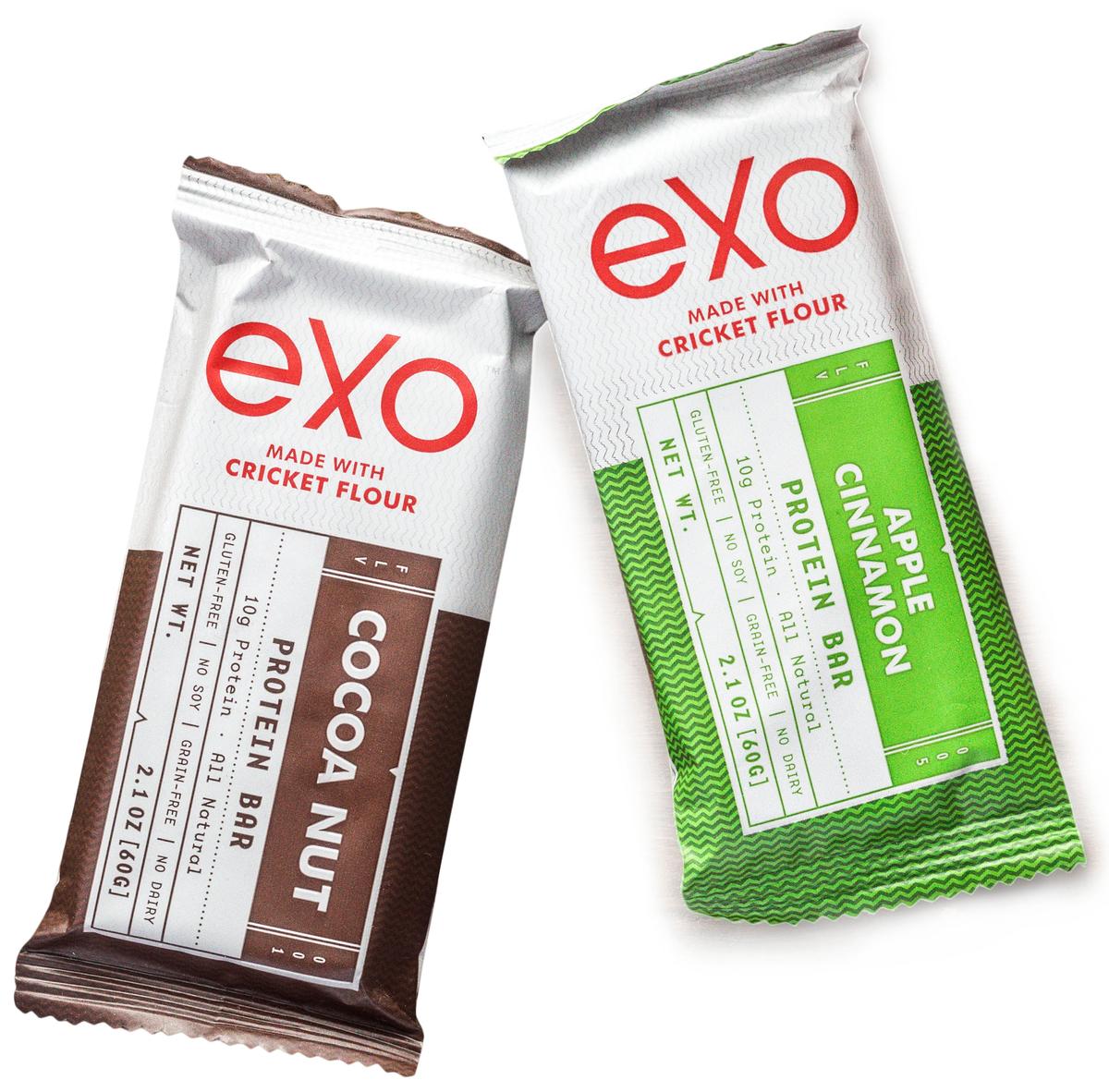Four years ago, Gabi Lewis and Greg Sewitz, college roommates at Brown University, ordered two shoebox-sized containers crammed with 2,000 live crickets. Their goal? To make protein bars.
Hours of Googling had established that they could turn the crickets into powder using their own oven and a blender—and from there, create energy bars.
That was their first product. Six months later, they launched a crowdfunding campaign to raise funds for their protein bar company, Exo.
“We did the Kickstarter to prove to ourselves and to everybody else that people would be willing to pay for cricket bars,” said Lewis. “We didn’t expect it to be such an overwhelming success.”
They reached their $20,000 goal within 72 hours.
Exo, based in New York, makes protein bars by combining cricket flour with raw cacao, dates, almond butter, and coconut, among other ingredients. The bars are sold at gyms, health food stores, farmers markets, and online.
Three years after the launch, the company raised $5.2 million from venture capitalists.
“I think a lot of investors are excited about the idea of introducing a whole new food source to consumers in America and Europe,” Lewis said.






